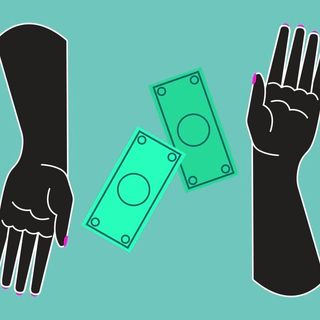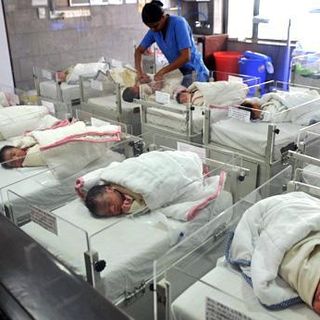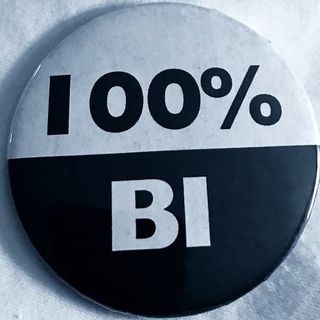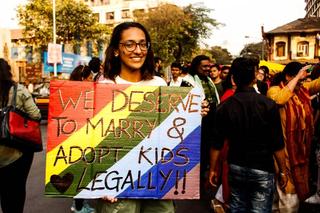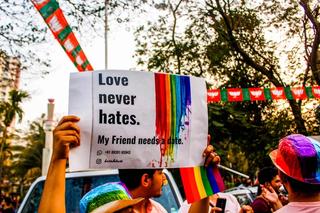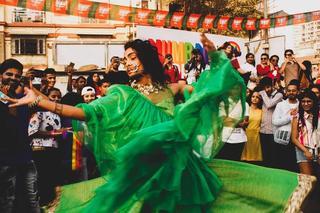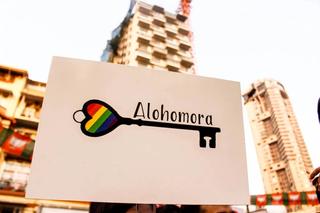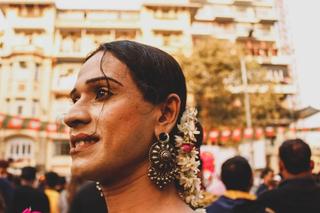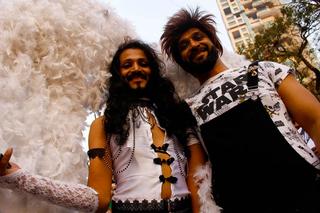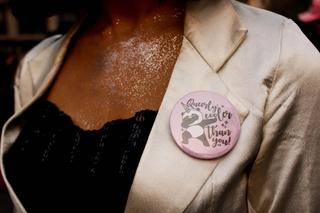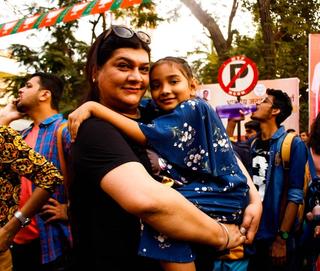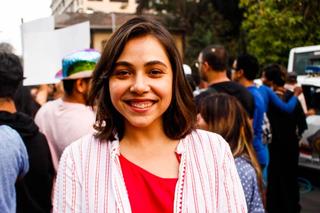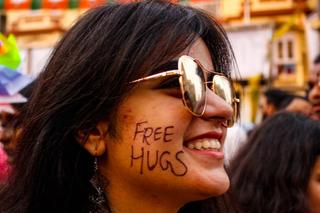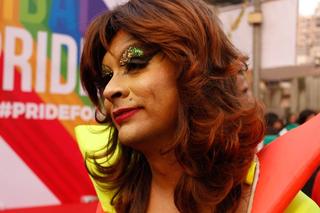The Queer Azadi March on Saturday drew thousands of Pride-goers to the streets of South Mumbai, clad in bright, shiny outfits, rhythmically swaying to the sounds of dhols and perhaps, to the promise of a better tomorrow.
The first Pride gathering after the Supreme Court of India passed a landmark judgment decriminalizing homosexuality last year, the theme of the march was “Pride for All.” The event served to include not only all members of the LGBTQ+ community, but also aimed to be a haven for those attempting to express differing political opinions, including censure of the government, said core organizer and gay rights activist, Ankit Bhuptani.
The next demand of the community is for the government to pass an anti-discrimination law that criminalizes acts of bigotry against members of the queer community, Bhuptani added.
Here are some sights and sounds of Mumbai Pride 2019:
“We need pride because there is still discrimination. We are not criminals anymore, but we are still not integrated into society,” 22-year-old Unnati Bhardwaj said. “Just by legalising homosexual sex, you haven’t won the war. The war is won when same sex couples are legally identified as married, when they are allowed to legally adopt children.”
*
*
“We want to get the support and respect everyone else enjoys,” said 20-year-old Jigar Rathod, who traveled from Surat, Gujarat, to attend Mumbai Pride. “Normally, I wear a cap. I don’t want people to stare at me. At pride, I can roam around with freedom. I love attention.”
*
*
“My mother and father have had to endure a lot of pain. ‘Why is your son like that?’ ‘Why does he walk like a woman?’ are things they get asked,” Pooja Sharma, 32, said, recounting the “years” of hatred they witnessed in Calcutta. “I never lied; I never took bribes; and I’m proud of that. Until now, I never got the respect I deserved. This, here, it means a lot.”
*
*
“Pride is one day where I can dress without getting so many looks. Even commuting to and from Pride, however, can be troublesome. People will look at you, stare at you, but will not come up to you and ask, ‘Hey, what is it?’” said Amrieta Duggal, 24. She stressed the importance of going beyond decriminalising homosexuality, urging the government to implement the 377 repeal in society.
“We love our country. We want to be loved by our country in return,” she said.
*
“I don’t know what my child’s gender identity would be but I’d want them to be proud of it,” human rights activist Simran Shaikh said, while holding her niece in her arms. “I’m trying to show her the other side of the beautiful world. She should know that it’s not just the binary section. I want to show her the entire universe.”
*
“… when we’re talking about women’s issues, we always want the men to speak up themselves, to lend support. Similarly, speaking about gender issues and fluidity, we need the heterosexual people to come in and speak, only then can we stand stronger together,” said actress Maanvi Gagroo.
*
*
“Pride, to me, means the freedom to be who I am. It also means that my friends have the freedom to be who they are,” said LGBTQ+ activist Harish Iyer. “Pride is only when it is a community feeling. That’s the reason why we chose the theme as ‘Pride for All,’ because we realized that we are not all equal.”
“There are communities who struggle more, such as bisexual women and transgenders, more than a cis-gendered gay man. We need to recognize those,” he said.
